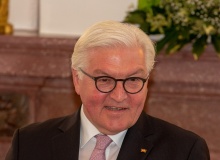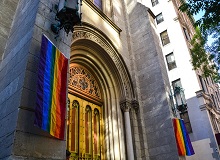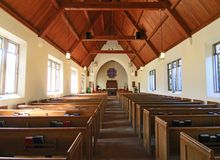


According to a major survey, evangelicals are 37% of the population, Roman Catholics, 33%. 29% said they are unaffiliated believers and 1% identify as non-believers.

Researchers found that 40% of the UK Christian families have less engagement with their church since the pandemic. Current attendance in US churches is at 85%.

A survey shows that among millennials and Generation Z, girls are more likely than boys to reject any religious approach.

The Talking Jesus research analyses “the evangelism landscape in the UK today”. 42% say they are non-practising Christians and 16% identify as agnostics or atheists.

The Christian life is not covered by a one-day seminar, it is a lifelong journey of preparation for eternity to come.

Frank-Walter Steinmeier was re-elected with a large majority. He is a member of the Evangelical Reformed Church and very outspoken about his faith.

As we take stock after two years of Covid-19 disruption, we will see how local church involvement is critical for all aspects of a healthy life.

A survey found that, while 33% of 18- to 34-year-olds plan to visit a place of worship during Christmas, only 17% of British over 55 will attend one.

The Holy Synod of the Greek Orthodox Church pointed out in a statement that they “support the government’s efforts to battle the resurging pandemic”.

Church trends in the 21st century.

The military announced a government of national unity. Guinean evangelicals ask to pray “for the unity of the church, socio-political stability and support to promote the gospel”.

For the first time since March 2020, physical distancing ends although face masks remain.“This is a time to celebrate, as we worship God together”, the Evangelical Alliance says.

Large mainline denominations that have adapted their theology to the LGBT ideologies have accelerated their loss of membership: 7 cases in 4 countries.

The answer to the question ‘are you religious’ or ‘do you belong to a religion’ depends on what the respondents understand by being ‘religious.’

7 Conversations is a suite of interactive multimedia resources. The aim is to help local churches “to thrive among all generations and bring young adults to faith in Jesus”.

According to the European Values Survey, migrants are more likely to belong to either a Muslim community or to be evangelical / Pentecostal than are the non-migrants.

Apologetics that is targeted on atheism is only reaching a tiny proportion of Europe’s population. The much greater challenge is reaching the huge number of unbelieving Europeans who are indifferent to Christianity and consider religion an irrelevance in modern life.

With the appointment of Anne-Nicole Heinrich, the institution aims to send a message of “missionality and inclusion”.

The churches that will recover the best from COVID and the Zoom church phenomenon are those which take thes three marks seriously: preaching, sacraments, and Christian fellowship.

“The way young people form bonds, make meaning, and live out their values is constantly changing. This is the most diverse generation that has ever existed”, concludes a survey conducted in the US.

A survey of the Swiss Federal Statistical Office shows that the membership of traditional religions has decreased in the country in the last 5 years.

In 1870, an American missionary founded the first Baptist church in Madrid. Swedish missionaries started work in the Mediterranean region. “We can only thank God for his faithfulness”, the Evangelical Baptist Union of Spain says.

The measures affect Madrid and nine other cities in the region. The capacity of places of worship is reduced to just one third, while leisure, restaurants or gambling venues will only be reduced to half.

Churches following Covid-19 secure guidelines, can hold more than six people in total. “We want to make Jesus known and do lots to help rebuild this nation”, the EAUK says.

Would this already-ailing institution ever recover from lockdown?

Las opiniones vertidas por nuestros colaboradores se realizan a nivel personal, pudiendo coincidir o no con la postura de la dirección de Protestante Digital.